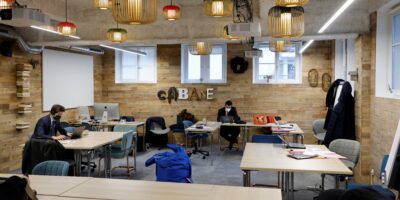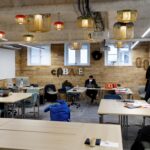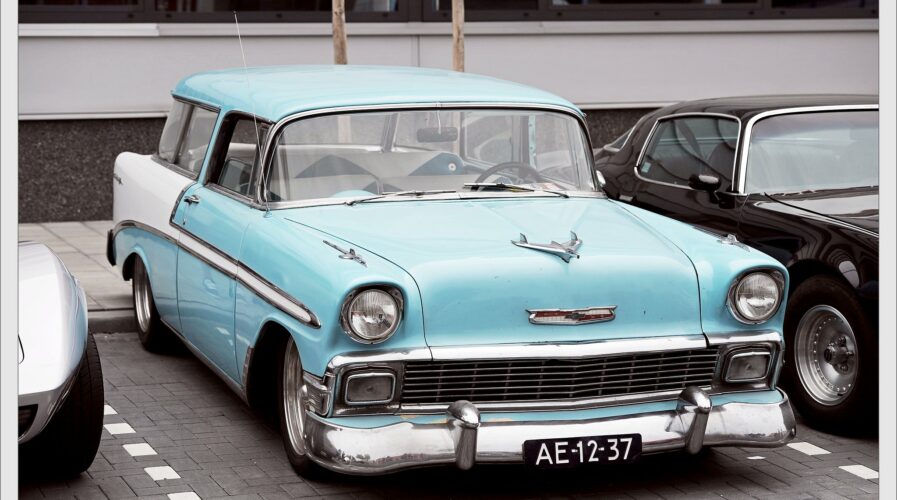
“Chevrolet Nomad / 1956” by Ruud Onos is licensed under CC BY-NC-SA 2.0
Malaysia’s digital nomad scheme a year old
- Digital Nomad visa application might be the first step for IT workers coming to Malaysia.
- Work from approved accommodation with good broadband.
- Scheme more popular since remote working became more acceptable.
Living and working abroad is one of those rites of passage that many people undertake at some stage of their lives. For previous generations, that meant going through various visa and right-to-work applications and getting a local job offer. That often took a significant investment of time and money, and foreign workers were always in danger of exploitation by local organizations seeking a cheap labor pool.
But today, a new generation of digital nomads exists, people with sellable skills who can work almost entirely digitally. The DE Rantau program in Malaysia is the latest national scheme to attract digital nomads to the country, joining trailblazer Estonia and several others since, including Spain, Croatia, Hungary, and Italy. Typically, digital nomad schemes offer a fast-tracked application process and grant successful workers up to a year-long visa to come and live in the host country and work digitally – either for a local company or, more often, for a company located anywhere in the world.
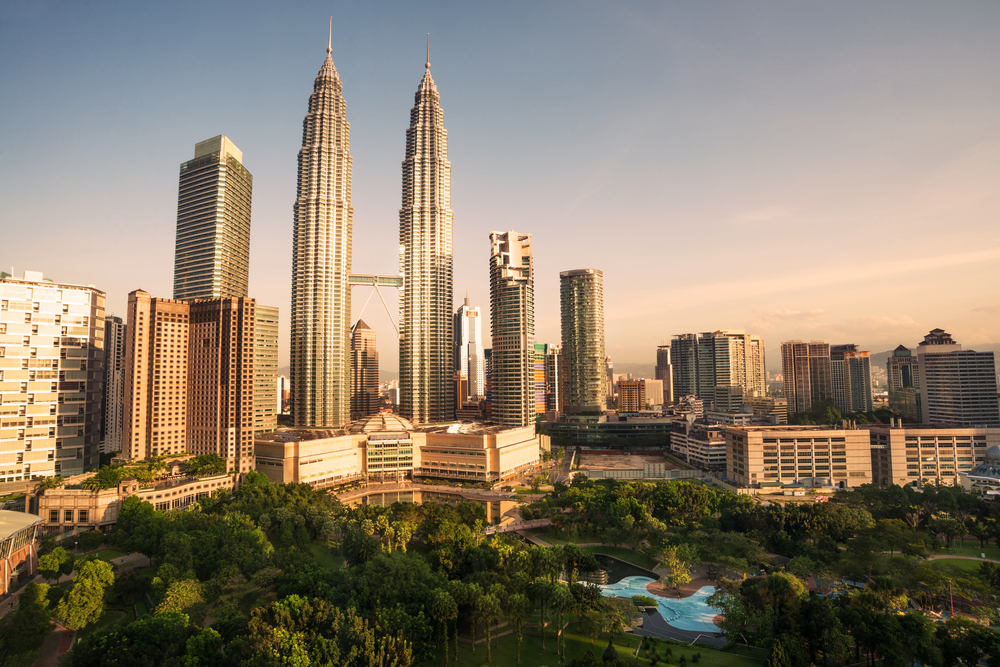
Home from home? Kuala Lumpur. Be honest – you’ve lived in worse places.
The DE Rantau program is modeled on the Greek system after its organizers examined several extant programs for Chiang Mai, Bali, Estonia, and Portugal. The Greek program was launched in 2019 and approved over 3,000 visas in 2021 alone. Since its launch around 13 months ago, 800 applicants have been granted digital nomad status in Malaysia.
Most nomads coming to Malaysia work in technology, with around a third being software developers. Others focus on AI, content creation, or ancillary software roles like technical writers of documentation or front-end UX design. Elsewhere, the emphasis is on attracting skilled IT workers.
In purely economic terms, participating countries are encouraging the flow of money from abroad for a worker’s wages rather than local currency going to a foreign worker who happens to be a temporary resident. Talented individuals may well also want to stay in their host country, and apply for full citizenship, thus bringing value to the economy in the long term.
Overwhelming response
Speaking in Seoul at the K Travel Tech Summit, Arifah Sharifuddin, head of digital tourism at MDEC (Malaysia Digital Economy Corporation ), said, “When we first announced the visa, we received all kinds of applications, and the rejection rate was very high. But now things have stabilized.”
DE Rantau vets the accommodation that nomads propose to use during their time in Malaysia, ensuring suitable internet connectivity and working environments. Hosting digital nomads is also proving popular among locals: “We have a lot of applications, everyone sees value in hosting,” Arifah said.
Malaysia’s culture, food, climate, and its having English as a common language works in its favor, compared to Estonia, for example. But wherever digital nomads may roam, most participating countries have stipulations around minimum income, health insurance, and proof of employment (or verifiable freelance history). Applicants have to have a valid passport, of course, and there is usually a fee for the visa application.
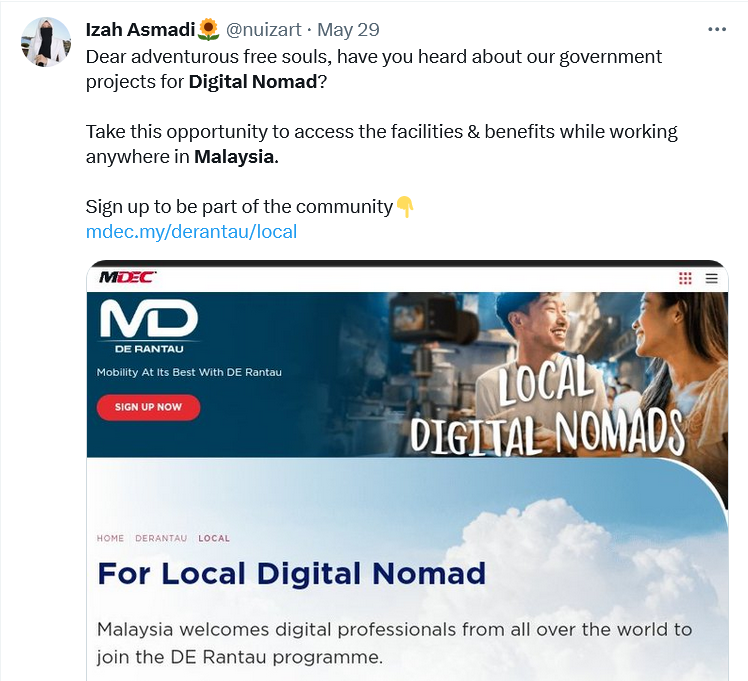
With technology opening up options, the life of a digital nomad is appealing to more and more tech workers.
There are specific rules, too, that might apply to where the worker’s main source of income comes from. In Spain, for example, only 20% of work can be from Spanish companies, while Estonia needs all digital workers in the digital nomad scheme to be employed (or have clients) outside the country.
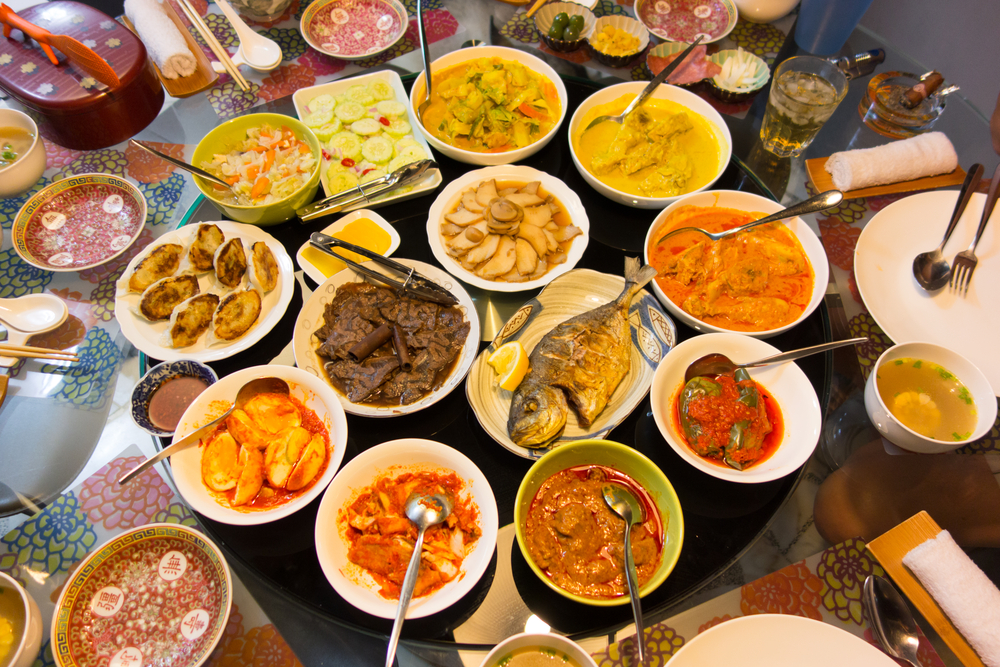
By the way… did we mention the food?
For anyone wishing to head to the APAC, Malaysia needs its immigrants on the DE Rantau scheme to have a clean criminal record and have proof of earnings of at least $24,000 a year. Visas are granted for three months to a year.
At a time when many workers around the world have transitioned to an at least partly remote model, the pool of prospective digital nomads looking for their next destination has increased massively in size. Malaysia’s first Digital Nomad Conference took place as part of the six-week MDX event this year, where one speaker said, “Malaysia’s superpower is diversity and inclusivity.” MDEC’s Arifah Sharifuddin put it in broader terms: “First we have fantastic food. Then we have a high quality of life that is affordable. Everybody speaks English, so there’s no language barrier. And we are warm people.”
READ MORE
- Data Strategies That Dictate Legacy Overhaul Methods for Established Banks
- Securing Data: A Guide to Navigating Australian Privacy Regulations
- Ethical Threads: Transforming Fashion with Trust and Transparency
- Top 5 Drivers Shaping IT Budgets This Financial Year
- Beyond Connectivity: How Wireless Site Surveys Enhance Tomorrow’s Business Network

